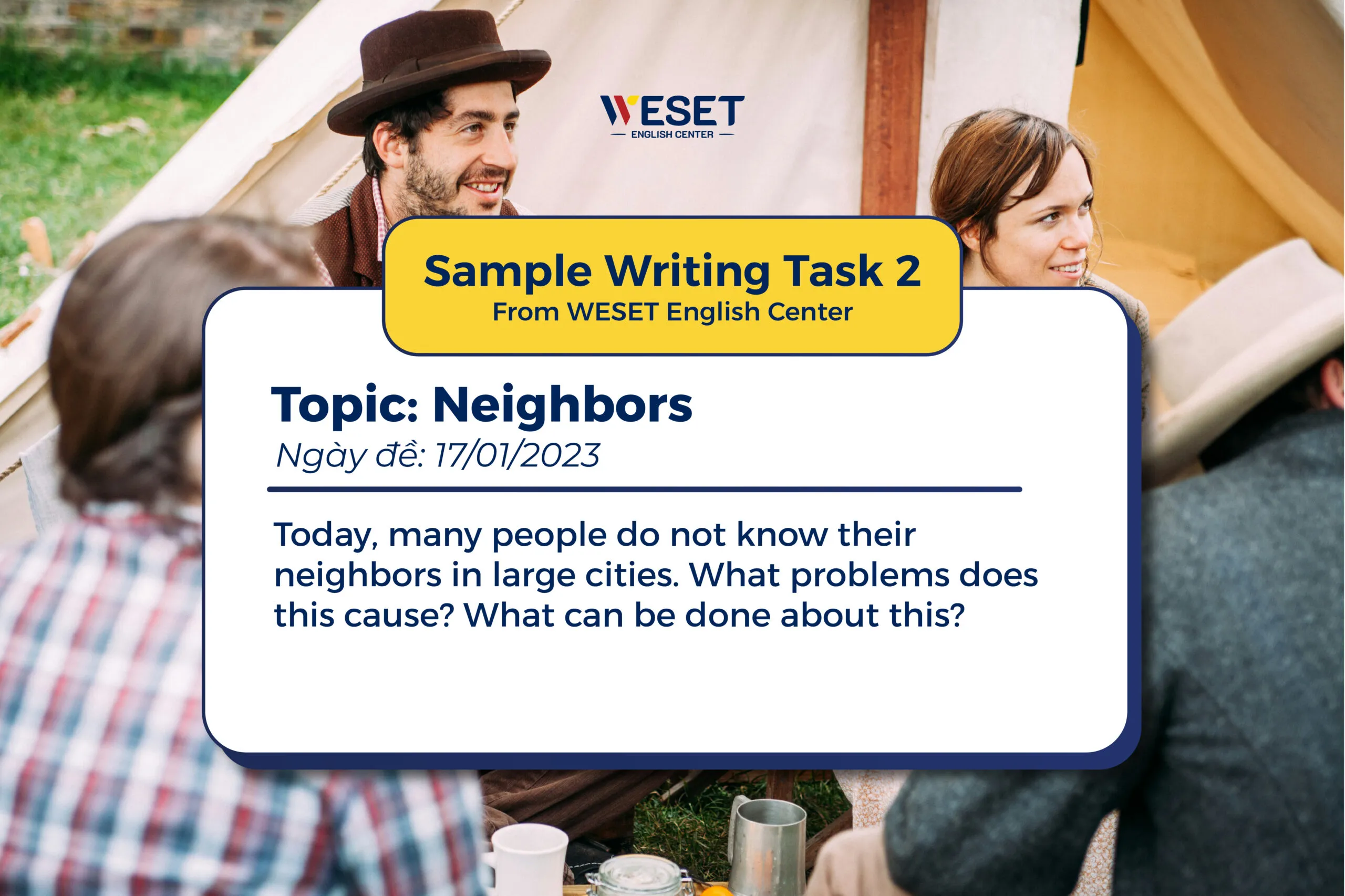Reading for new vocabs – Should You Stay Friends With an Ex?
- Cerys Wu
- Blog học tiếng Anh
- 18/07/2020
Should You Stay Friends With an Ex? Here’s What Experts Say

Few relationship questions are as 1polarizing as whether or not you should stay friends with an ex. For every person who tries to 2salvage the good and forget the bad, there’s another who’d rather move on and never look back. 3Anecdotal evidence feeds arguments on both sides — but what do the experts say?
Rachel Sussman, a New York City-based 4psychotherapist and author of The Breakup Bible, advises caution 5when it comes to staying friends, but says there are couples for whom it works; ultimately, she says, it’s “an individual determination.” Nonetheless, Sussman says there are some guidelines all exes should follow after a breakup.
- Polarize (v): to divide beliefs, ideas, opinions into clearly separate groups, or to make people become separated.
Ex1: The subject of interest rates continues to polarize the business community.
Ex2: The debate is becoming polarized and there seems to be no middle ground. - Salvage (v): to try to make a bad situation better; to make sure that you do not lose / fail something completely, to retrieve or preserve (something) from potential loss.
Ex1: He fought to salvage the company’s reputation.
Ex2: After the scandal, he had to salvage his reputation. - Anecdotal (adj): not based on facts or careful study; based on reports or things someone saw, not proven facts.
Ex1: There is only anecdotal evidence that the cure for cancer works.
Ex2: Discovery about ghosts are based on anecdotal evidence rather than serious research.
Collocation: + Anecdotal evidence - Psychotherapist (n): a person who treats mental disorders by psychological rather than medical means.
Ex1: He sees a psychotherapist twice a week.
Ex2: As a licensed psychotherapist, she devotes time to traveling to schools to speak about her experiences.

- When it comes to (doing) something (Phrase): when the subject being discussed is a particular thing
Ex1: When it comes to holidays, I prefer doing something lazy.
Ex2: When it comes to writing letters, she’s hopeless
When to 6cut ties with an ex
7Under no circumstances should a relationship that was 8abusive, manipulative or toxic transition into a friendship, Sussman says. But even if your relationship was generally healthy and simply didn’t work out, you might want to think twice before becoming pals. One 2000 study, for example, found that friendships between exes were more likely to have negative qualities, and less likely to have positive ones, than cross-sex platonic friendships.
That may be especially true if you were never friends before you dated, Sussman says. “If you had a really strong connection and a really strong 9love affair with a very erotic sex life, how do you become friends with that person?” Sussman says. “10Chemistry doesn’t always change.”
- Tie (n) ( Usually used as Ties ): personal, financial connection or relationship between people, organizations, places, etc.
Ex1: Family ties are weaker if you move a long way away.
Ex2: I no longer feel any ties with my home town.
Ex3: The two leaders have close ties with American media groups.
Collocation:
+ Cut/break/sever ties with someone
+ Diplomatic/economic/political ties
Ex4: Mary cut all ties with her family when she moved to New York City.
Ex5: The US president pushed governments to break diplomatic ties with China.
- Under no circumstances (Phrase): used to emphasize that something must not happen.
Ex1: Under no circumstances are you to go out.
Ex2: Under no circumstances should you (= you should not) approach the man.
- Abusive (adj): bad or wrong use of something or bad treatment of someone, especially for your own advantage
Ex1: Workers complained of abusive conditions, as they were forced to work 18 hours a day.
Ex2: The former chairman was found guilty of abusive business practices
- Love affair (n): a romantic sexual relationship, usually between two people who are not married to each other. OR a strong interest in something.
Ex1: The sport started advertising in New York because of the city’s love affair with football.
Ex2: Her love affair with ballet began when she was ten.
Ex3: This scandal marked the end of the Labour party’s love affair with the press.
Note: + A love affair with something - Chemistry (n): a quality that exists when two people understand and are attracted to each other. The complex emotional or psychological interaction between people.
Ex1: I’m surprised the chemistry between them has developed so quickly.
Ex2: Since the film is a character drama, it relies very heavily on the interaction and chemistry between the characters.
Ex3: The sexual chemistry between them was obvious.
Sussman also says there are potential 11downsides to staying friendly with an ex. “Sometimes that will hold you back from going into a new relationship,” she warns. (There’s even research to back this up.) “Or you get into a new relationship and you tell your new girlfriend or boyfriend, ‘My ex is one of my closest friends.’ That’s complicated. Are you giving the new relationship a [fair] chance to really flourish or blossom?”
Ashley Brett, a psychology researcher in her late 20s (who asked to use a pseudonym to protect her identity), knows that struggle well. After breaking up with her boyfriend of about a year and a half, Brett stayed friends with him — and fell into an 12on-again, off-again relationship that lasted for more than five years. “The friendship was never really separate from the previous romantic relationship,” Brett says. “It turned into the next cycle of a romantic relationship, and then back into friendship.”
Downside (n): the negative part or disadvantage of something = drawback (n)
- Ex1: Unemployment is often the downside of a market economy.
Ex2: The downside of living here is that it is expensive.
Note: + The downside of something
Collocation:
+ a big/main/major drawback
+ a drawback for someone
+ benefits and drawbacks
Ex4: The design of the computer has one big drawback: a noisy fan.
Ex5: Every strategic choice has its benefits and drawbacks.
Acronym:
+ Upside (n): the positive part of a situation
Ex6: The house is expensive, but on the upside it’s in the best part of the business district.
- On-again, off-again (adj): not continuous; stops and starts again
Ex1: The two were in a on-again, off-again relationship.
Ex3: Discussions were on-again, off-again for two years.
Collocation:
+ An on-again, off-again relationship
Though Brett says the relationship had enough upsides that she’d probably “make the same mistake twice,” she says she’d be 13hesitant to recommend the same to a friend or therapy client. “The largest 11drawback is being inhibited from new relationships and new experiences,” Brett says. “I closed myself off to other people and I didn’t really want to open up to somebody again, and that’s maybe not, psychologically, the healthiest orientation to life.”
Brett adds that repeatedly 14falling back on friendship allowed her to numb some of the pain of each breakup — which may seem like a good strategy, but can actually prevent future growth. One study, published in 2013 in PLOS One, found that “breakup distress may act as a 15catalyst for personal growth,” while avoiding that distress may inhibit the development process.
Hesitant (adj): do not do something quickly because you are not certain
- Ex1: You seemed a bit hesitant about choosing that restaurant.
Ex2: She gave me a hesitant smile.
Note 1:
+ Be hesitant to do something
+ Be hesitant about (doing) something
Ex3: They seemed hesitant about the study.
Ex4: She is hesitant to draw conclusions until the study is over.
-> Hesitation (n): the act of pausing before doing something, especially because you are not certain
Note 2:
+ without/have no hesitation in doing something
+ a slight/brief/momentary hesitation
Ex5: He agreed without hesitation.
Ex6: I would have no hesitation in recommending Philip for the position.
Ex7: There was a slight hesitation in his voice
- 14. Fall back on something/someone (Phrasal verb): to use something or depend on someone’s help when dealing with a difficult situation, especially after other methods have failed
Ex1: She always has her teaching experience to fall back on.
Ex2: Where negotiation fails, they must fall back on the law.
Collocation:
+ have somebody/something to fall back on
Ex3: She has no relatives to fall back on.
- Catalyst (n): something or someone that causes an important change or event to happen
Ex1: The high suicide rate acted as a catalyst for change in the prison system.
Ex2: The women’s movement acted as a catalyst for change in the workplace.
Collocation:
+ Act as a catalyst for something
When to stay friends with an ex
Sussman says exes who have kids together should try to remain on good terms if possible, since they’ll be in each other’s lives for the long run. The lines are murkier for couples without children, but Sussman says those who dated when they were young, were friends first, dated casually or were together only for a short time are good candidates for friendship.
Robin Zabiegalski, a 31-year-old writer who lives in Vermont, is a notable 16counterexample. She’s happily married, but still maintains close friendships with several of her serious ex-partners — including her ex-husband and an ex-boyfriend she lived with for years after their breakup.
It wasn’t always that way. “I had burned all my relationships to the ground, and I was not really friends with any of my exes,” Zabiegalski says. But eventually, 17in pursuit of personal growth, she reached out to her ex-partners — first to apologize for past transgressions, then to try and “reclaim” the relationships they’d shared for years. “That’s a huge chunk of my life that is kind of co-owned by this person,” she says. “I just felt like those pieces of me were missing, and the only way to reclaim those pieces of myself was to, on their terms, be like, ‘Can we repair this relationship?’”
Zabiegalski admits these friendships only work because her husband is “inherently not jealous,” and because she’s open about both her past relationships and current interactions with exes. She also says it’s crucial to only pursue friendships when the romantic spark has completely faded for both parties. “If you’re staying friends and the real goal is to get them back, that’s just continuing drama that you don’t need,” she says.
The research supports that notion. Studies suggest that couples who remain in contact for the same reasons — whether those are 18pragmatic or 18sentimental — are more likely to have successful friendships, while staying in touch because of unresolved romantic desires is a predictor of negative outcomes.
- 16. Counterexample (n): an example that opposes or contradicts an idea or theory.
Ex1: The media presented him as a counterexample to the common stereotypes. - 17. In pursuit of something (Phrase): try to get, achieve, or find something in a determined way
Ex1: People are having to move to other areas in pursuit of work.
Ex2: The union is on strike in pursuit of (= trying to achieve) a ten percent pay increase. - 18. Pragmatic (adj): solving problems in a sensible way that suits the conditions that really exist now, rather than obeying fixed theories, ideas, or rules
Ex1: In business, the pragmatic approach to problems is often more successful than an idealistic one.
Ex2: He made a pragmatic decision to settle the lawsuit because in the end it would cost more to try it in court.
Antonym: Sentimental (adj): strongly influenced by emotional feelings, especially about happy memories or relationships
Ex1: It’s a cheap ring but it has great sentimental value for me.
Ex2: He gets sentimental and starts crying when we talk about his mother.
Ex3: He wasn’t the sort of person who kept things for sentimental reasons.
How to stay friendly with an ex?

If you decide to try a friendship with an ex, Sussman suggests taking a break first. “I’m quite suspect of those couples that break up and then tell me right away that they’re best friends,” she says. “Time heals. A lot of 19insight can come with time and space apart.”
That goes for social media as well as in-person interactions. “I would love for couples to unfollow and unfriend each other for a few months [after a breakup],” Sussman says. Otherwise, “before you know it, you’re checking your Instagram and you’re seeing your ex, and that brings up all sorts of thoughts and feelings which might make you, on some emotional level, feel reconnected to that person.”
Boundaries are also important for couples-turned-friends, Sussman says, though they’ll likely look different for everyone. “A healthy boundary could look like, ‘Let’s not talk every day. Let’s not text every day,’” Sussman says. “‘Every couple of months let’s grab a meal, see a movie — but not regular, daily contact.’”
Above all, regularly reassess how the friendship makes you feel, and be honest with yourself. “More times than not, [someone who stays friends with an ex] is kind of clinging to something,” Sussman says. “It’s more of a 20security blanket.”
If that’s the case for you, it may be healthier to let the friendship go — even if it hurts in the moment.
- 19. Insight (n): clear understanding of something or part of something, especially a complicated situation or idea
Ex1: The article gives us a real insight into the causes of the present economic crisis.
Ex2: We help troubled teenagers gain some insight into their own problems.
Ex3: The research provides new insights into the way we process language.
Collocation:
+ Provide/give insight into something
+ Gain insight into something
20. Security Blanket (n): something that provides reassurance, support, or a sense of security.
Ex1: Having my brother at the same college gave me the security blanket I needed to leave home.
Ex2: Not having the phone can create a lot of anxiety, so the phone today has become our security blanket.







